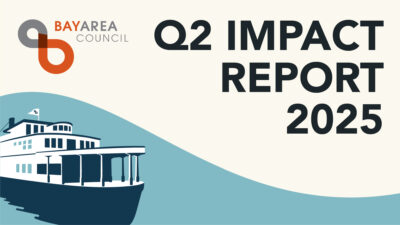Bold Regional Plan Offers Unique Opportunity to Significantly Help Fix the Bay Area’s Painful Housing Crisis
Solving the Bay Area’s epic housing crisis will require a wide range of strategies and a considerable amount of give and take among a diverse mix of stakeholders, many with competing and sometimes conflicting interests. A bold, comprehensive regional plan unveiled in December aims to take on the immense challenge of bringing together all those pieces and giving the Bay Area a unique and perhaps once-in-a-generation opportunity to solve a problem whose scale and complexity flatly defies half measures. TMG Partners CEO and former Bay Area Council Chair Michael Covarrubias co-chaired the group—Committee to House the Bay Area or CASA—that developed the plan, dubbed the CASA Compact. Initial reviews have been generally favorable as key decisions loom for moving the plan forward in the coming weeks and months, but some critics long-aligned against specific parts of the plan are eyeing it warily.
“Doing nothing as our region suffers from a historic housing shortage and affordability crisis is not an option,” Covarrubias said. “We must compromise, break down silos, and set aside differences for the greater good of the Bay Area, and the CASA Compact gives us a unique opportunity to do just that.”
The CASA Compact was developed through an exhaustive public process over 18 months by a group of more than 50 government, housing, social equity, business and community leaders from around the region convened by the Metropolitan Transportation Commission (MTC) and the Association of Bay Area Governments (ABAG). Fred Blackwell, CEO of the San Francisco Foundation and Leslye Corsiglia, Executive Director of Silicon Valley@Home joined Covarrubias in co-chairing CASA.
The 15-year emergency plan outlines 10 key elements that seek to balance the broad regional goals of protecting tenants, preserving affordable housing and spurring new residential construction. It targets an historic dearth of new housing construction that has led to stratospheric rents and home prices throughout the region, contributed to a growing homeless epidemic, forced workers on longer and longer commutes and threatened to undermine the region’s economy.
Many of the solutions in the regional plan are not new and are consistent with approaches the Bay Area Council has long endorsed, including encouraging new housing near transit and easing local regulatory barriers and fees. Many will require state legislation. Still others will require voter approval. A number of the proposals, from reducing onerous regulatory burdens to utilizing state-owned land for housing, are similar to those that Gov. Gavin Newsom this week included in his proposed budget.
According to the San Francisco Chronicle’s editorial board, “The plan’s most entrenched opponents have been less likely to suggest modifications than to decry the process, cast aspersions on its motives, and blindly insist on the sacrosanctity of local rule. What they haven’t done is explain how they would alter the status quo — probably because they have no desire to do so.”
MTC’ Board of Directors by a near-unanimous vote recently endorsed the CASA Compact, and ABAG has scheduled a vote for Jan. 17 before CASA leaders take it to Sacramento to share with state legislators. The Bay Area Council, which has been carefully studying the plan over the past month, is preparing to announce a formal position next week ahead of the ABAG vote. As the Council considers its position, we welcome your thoughts. To give your input, please contact Senior Vice President Matt Regan.





